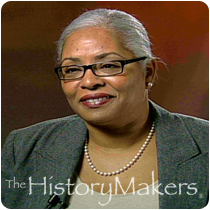RAINMAKING IN CHICAGO
In its 58 years, Chicago’s William Blair & Co. has not strayed from its historic approach to developing client relations: First find wellmanaged small to mid-sized niche businesses–companies that have revenues between $100 million and $1 billion and have high-growth characteristics. Make sure they have growth potential and stick with them over the long haul.
The firm’s approach to tapping talent is much the same. As one of the few independent, high-quality investment houses left in the Midwest, William Blair is highly selective and has little turnover. Like her firm, partner Michelle Collins–a Yale University alumna who was hired out of Harvard Business School in 1986 by William Blair–is, says one of her peers, “a quiet power.”
Considering Collin’s experience, her choice of William Blair over a large New York city firm clicks. Prior to attending Harvard she was a Chase Manhattan Bank corporate auditor and she visited many companies in a spectrum of industries. “I was looking for a smaller, more intimate place, where you don’t have seven layers of management,” she says.
Last January, Collins was made a partner in the Corporate Finance Department, Much is expected of Collins in this rainmaking position. In six years, she has demonstrated a solid abilityfor doing deals in public or private equity offerings, mergers or acquisitions.
Modest and amicable, Collins is known for her rapport with clients. She also is committed to her hometown, serving on the Chicago Historical Society, the Visiting Nurse Association of Chicago and the Chicago Child Care Society boards,
Of William Blair’s 45D employees, 93 are partners. Collins, 32, is the only black partner and one of three women partners, Hierarchy is a bad word at William Blair, which emphasizes maintaining intimate relationships with its clientele. Says Collins: “The decision to walk away from a potentially large fee because something doesn’t sit right with you, is just as valued as the decision to aggressively pursue a client,”
Although specialization tends not to be one of the firm’s goals, Collins has worked on several deals involving office products manufacturers and retailers. She recently participated in a $13 million common-stock offering for Office Club Inc., and in the $269 million acquisition of that company by Office Depot Inc.
In November 1991, shortly before Collins was reviewed for partnership, she was in on William Blair’s deal of the year: the $694 million sale of Sanford Corp. to Newell Co., a writing instrument manufacturer and a long-standing client. Collins had been Sanford’s financial adviser since 1987 and was a key corporate finance representative on the sale. Last June, she worked on a deal where United Stationers Inc. acquired Stationers Distributing Co. for $80 million.
Collins won’t say her involvement in the transaction nailed down her partnership, but she concedes, “It certainly didn’t hurt.”
Partnership has not changed Collins’ responsibilities, yet. She says her clients remain the same. But one thing is clear: Every dollar in profit she generates for William Blair increases her share.










